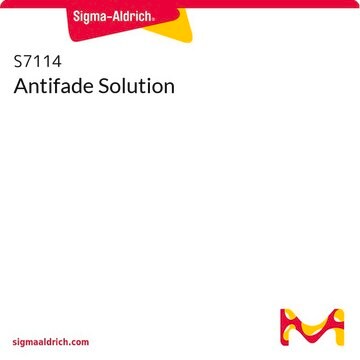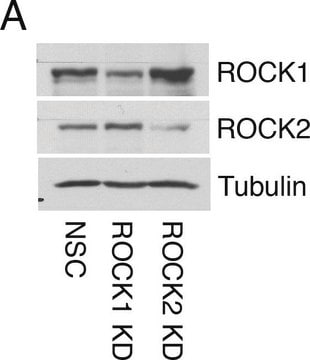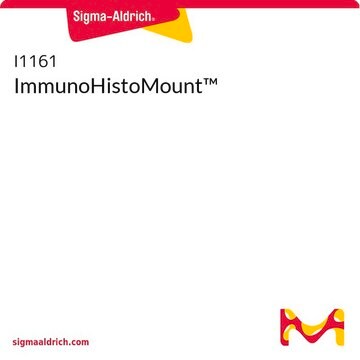Recommended Products
product name
Fluoroshield™ with DAPI, histology mounting medium
Quality Level
form
liquid
composition
Sodium Azide, ≤1% (also contains other ingredients)
Tris-HCl
technique(s)
immunofluorescence: suitable
pH range
7.9-8.3
solubility
water: soluble
fluorescence
λex 360 nm; λem 460 nm
application(s)
diagnostic assay manufacturing
hematology
histology
storage temp.
2-8°C
General description
Application
- as a counterstain in immunocytochemistry to label nuclei of neural progenitor cells
- as a histology mounting medium for cardiac tissues sections for immunofluorescence studies
- as mounting solution for immunostained heart sections for nuclei detection
Legal Information
related product
Storage Class Code
10 - Combustible liquids
WGK
WGK 3
Flash Point(F)
Not applicable
Flash Point(C)
Not applicable
Certificates of Analysis (COA)
Search for Certificates of Analysis (COA) by entering the products Lot/Batch Number. Lot and Batch Numbers can be found on a product’s label following the words ‘Lot’ or ‘Batch’.
Already Own This Product?
Find documentation for the products that you have recently purchased in the Document Library.
Customers Also Viewed
Articles
Human Protein Atlas uses A-431, U-251 MG, and U-205 cell lines with Prestige Antibodies for organelle mapping.
High titer lentiviral particles for LC3 variants used for live cell analysis of cellular autophagy.
High titer lentiviral particles including beta-actin, alpha-tubulin and vimentin used for live cell analysis of cytoskeleton structure proteins.
Organoid culture products to generate tissue and stem cell derived 3D brain, intestinal, gut, lung and cancer tumor organoid models.
Our team of scientists has experience in all areas of research including Life Science, Material Science, Chemical Synthesis, Chromatography, Analytical and many others.
Contact Technical Service









